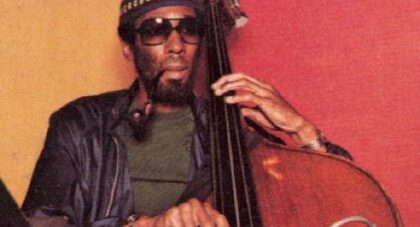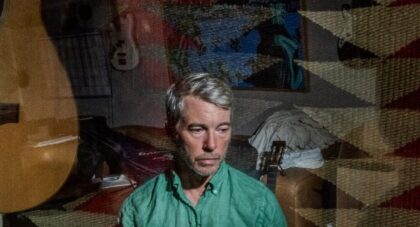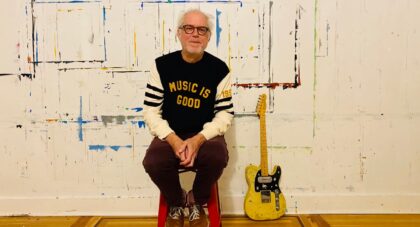This week marks the release of Down Where The Spirit Meets The Bone, the 11th studio album from Lucinda Williams. It's a first in many ways - her first double studio album, her first on her new self-run record label, and her first to feature lyrics written by her father, poet Miller Williams. Williams spoke with AD via phone earlier in September about learning to expand her songwriting palate, using other songs to craft her own, starting the new record label and how you should get out and play in front of an audience all ready.
Aquarium Drunkard: The last time you and I talked, we talked a little bit about whether there was a theme to that album, Blessed. And you said it was difficult to answer, that you hadn't really thought about a theme ahead of time. And maybe this is me projecting my own thinking onto your work, but this time it really feels like there's a connective thread for these songs, especially built around the title track and your father's poem. Was there a more conscious decision this time?
Lucinda Williams: Uhm, not really. [laughs] As far as the songs - we actually recorded about 35 tracks worth of material. This group of songs were picked to work together from those, so in that sense, yes, it was a conscious effort. The other ones will be on another album separately. But when I was sitting down to write the songs, I wasn't thinking of a specific theme.
And the "Compassion" song [ed. note: which contains the album title phrase], I wrote that kind of at the 11th hour. I didn't have it written. I'd been trying to get that done. I'd been wanting for years to take one of my dad's poems and turn it into a song, but it's a really hard thing to do. It proved to be really challenging. And the title [of the album] was decided before I had got that song. But I finally got the song done. It was something we wanted to see happen, but I wasn't sure if I'd be able to pull it off or not. That was the last thing we cut.
AD: If you hadn't been able to finish the song, the record would have still had the same name?
Lucinda Williams: Yeah. Interestingly enough, on the inside of [2007 album] West, we used the same quote from that song. It just seemed to be sticking with us and making sense. It was all just kind of a work in progress.
AD: In the promotional material, it talks about how you've been coming up with more material for each record than there is room for..
Lucinda Williams: I used to not do that though! [laughs] I'm not sure why that is, but I've become more prolific as I've become older.
Only the good shit. Aquarium Drunkard is powered by its patrons. Keep the servers humming and help us continue doing it by pledging your support.
To continue reading, become a member or log in.


